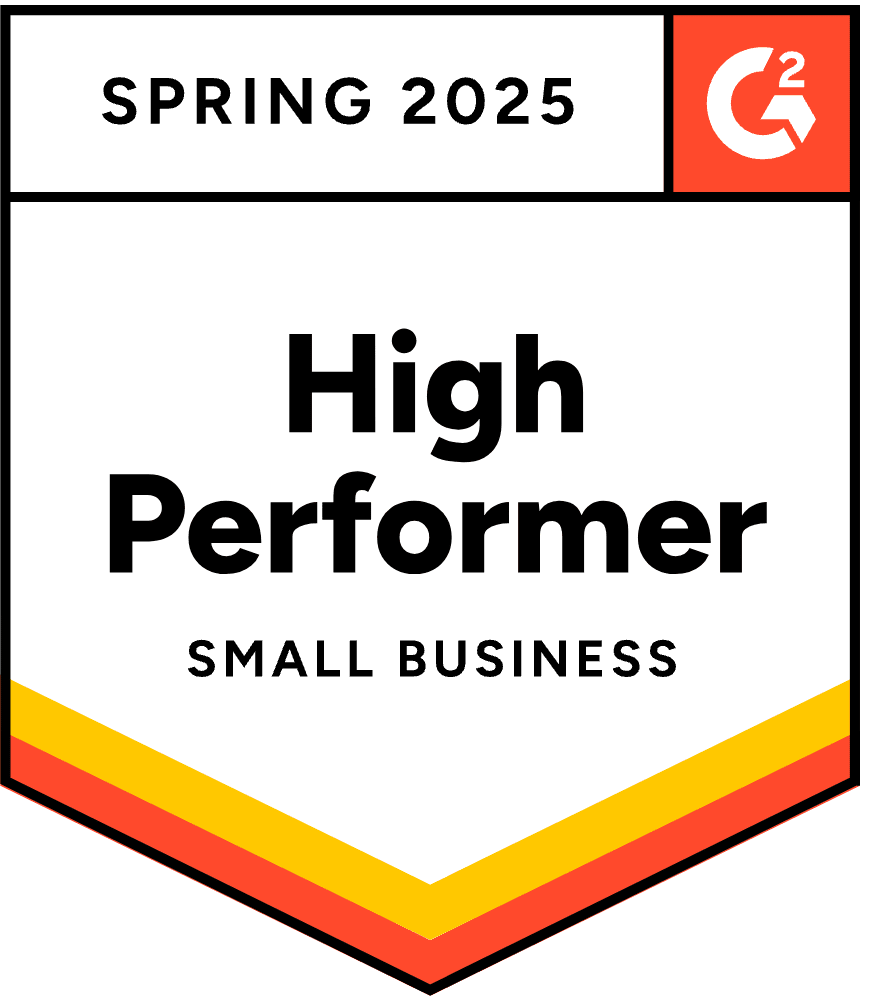- Blog
- 14 CRO Tools That Will Skyrocket Your Conversions in 2025
14 CRO Tools That Will Skyrocket Your Conversions in 2025
-
Barbara Bartucz
- Conversion
- 6 min read
Table of Contents
Are you struggling with low conversion rates?
Converting visitors into customers is not just a goal—it’s a necessity. After all, what’s the point of investing in advertising if those clicks aren’t translating into sales?
To increase your conversion rates, you’ll need effective conversion rate optimization tools that can analyze user behavior, improve the user experience, respond to user behavior, optimize conversion rates effectively, and ultimately drive more sales.
However, with many conversion rate optimization tools flooding the market, finding the right one for your business can be daunting.
That’s why we’ve curated a list of the best 14 CRO testing tools. These tools will help you make the most out of your website visitors and convert them into paying customers.
Let’s get started!
Why are CRO tools important?
Conversion rate optimization tools are important for many reasons. Here are just a few of the things you can do using CRO tools:
- Identify conversion barriers: CRO tools can use quantitative data to identify areas where a website is facing conversion issues. By analyzing user behavior, you can find specific pages or elements that may be hindering conversions. Many CRO tools allow you to access user sessions and examine user flow from their perspective.
- Optimize user experience: Once you understand typical user behavior on your site, you can make data-driven decisions to improve the user experience and increase conversions. Many CRO tools also help you make those improvements, such as website personalization software that improves the user flow.
- Conduct A/B testing: Nearly all conversion rate optimization tools allow you to perform A/B testing. When you can test different variants of your web pages or marketing campaigns, you can be confident about which option will result in the best conversion rates.
- Measure key performance indicators: CRO tools help measure the success of your optimization efforts by tracking key performance indicators (KPIs) such as conversion rates, click-through rates, bounce rates, etc. The more data you have, the better and more informed your decisions can be.
- Analyze user interactions: CRO tools like form analytics tools help analyze user interactions with forms on websites. They provide insights into user behavior, such as which fields users hesitate on, abandon, or skip, enabling website owners to optimize their forms for better completion rates and improved conversion rates.
How to choose the best conversion rate optimization tool for your business?
Now that you know why conversion rate optimization tools are crucial for ecommerce success, let’s take a look at the factors that determine which tool is right for your business.
Here are five things to keep in mind when trying to find the best conversion rate optimization software.
1. Ease of use
You should look for a CRO tool that’s easy to use and has a user-friendly interface.
The whole point of having a CRO tool is to perform conversion rate optimization, so you don’t want to spend weeks learning how to use the tool or dealing with technical issues.
2. Integrations
Make sure that any CRO tool you invest in can integrate with the ecommerce software you currently use.
For instance, if you’re on Shopify, make sure the CRO tools you’re looking at work with the platform. And if you use services like Google Analytics or Google Optimize, make sure those are also available integrations.
3. Cost
There’s a big range in pricing when it comes to CRO tools, and there are several different pricing models you need to consider (monthly subscription vs. one-time fees vs. pay-as-you-go).
If you’re just starting out, you might want to begin with a free CRO tool.
4. Support
The best CRO tools will provide you with a strong support system. It should never be a struggle to get someone from the company on the phone.
You might need to get in touch with them if you encounter any issues or have questions about using the tool.
5. Reputation
Finally, it’s important to look for a tool with a good reputation and positive reviews from other users. This will give you confidence in the tool’s effectiveness and reliability.
14 must-have CRO tools to boost conversions
Now it’s time to dive into our list of the best conversion rate optimization tools, including some free tools.
Many platforms offer a suite of free tools for site conversions and lead capture, such as OptiMonk, or for tracking website visitors and analyzing keywords, devices used, and demographic data, like Google Analytics.
These free tools can be particularly beneficial for businesses looking to start with conversion rate optimization without a significant initial investment.
We’re going to get into a lot of detail about each one, so here’s a quick tl;dr of the best CRO tools:
- OptiMonk: The only AI-powered, all-in-one conversion optimization platform.
- Optimizely: An advanced website personalization and testing platform.
- HotJar: One of the best heat mapping tools for understanding how customers experience your website.
- Crazy Egg: Gain an understanding of how users behave on your website with this heat-mapping software.
- SurveyMonkey: Create feedback forms and gather important insights about your performance from your user base.
- Qualtrics: Learn about which areas of your business can be improved with this customer feedback tool.
- Intercom: Use live chat to interact with your customers in real time.
- Zendesk: This customer support software will help you deliver the level of customer service your customers want.
- Unbounce: Use this popular tool to create beautiful landing pages.
- Leadpages: Boost conversions with this high-performing landing page builder.
- Smaply: Discover the best areas to improve in order to boost conversion rates with this customer journey mapping software.
- Custellence: Understand your audience on a deep level with this customer journey mapping tool.
- Google Analytics: Use this classic web analytics tool to understand your traffic and digital marketing performance.
- Kissmetrics: This user behavior analytics platform can help you improve website conversion rates.
All-in-one CRO tools
First, let’s take a look at all-in-one conversion rate optimization (CRO) solutions.
These comprehensive tools combine multiple functionalities into a single platform, allowing you to manage everything from A/B testing to lead capture and website personalization in one place.
1. OptiMonk
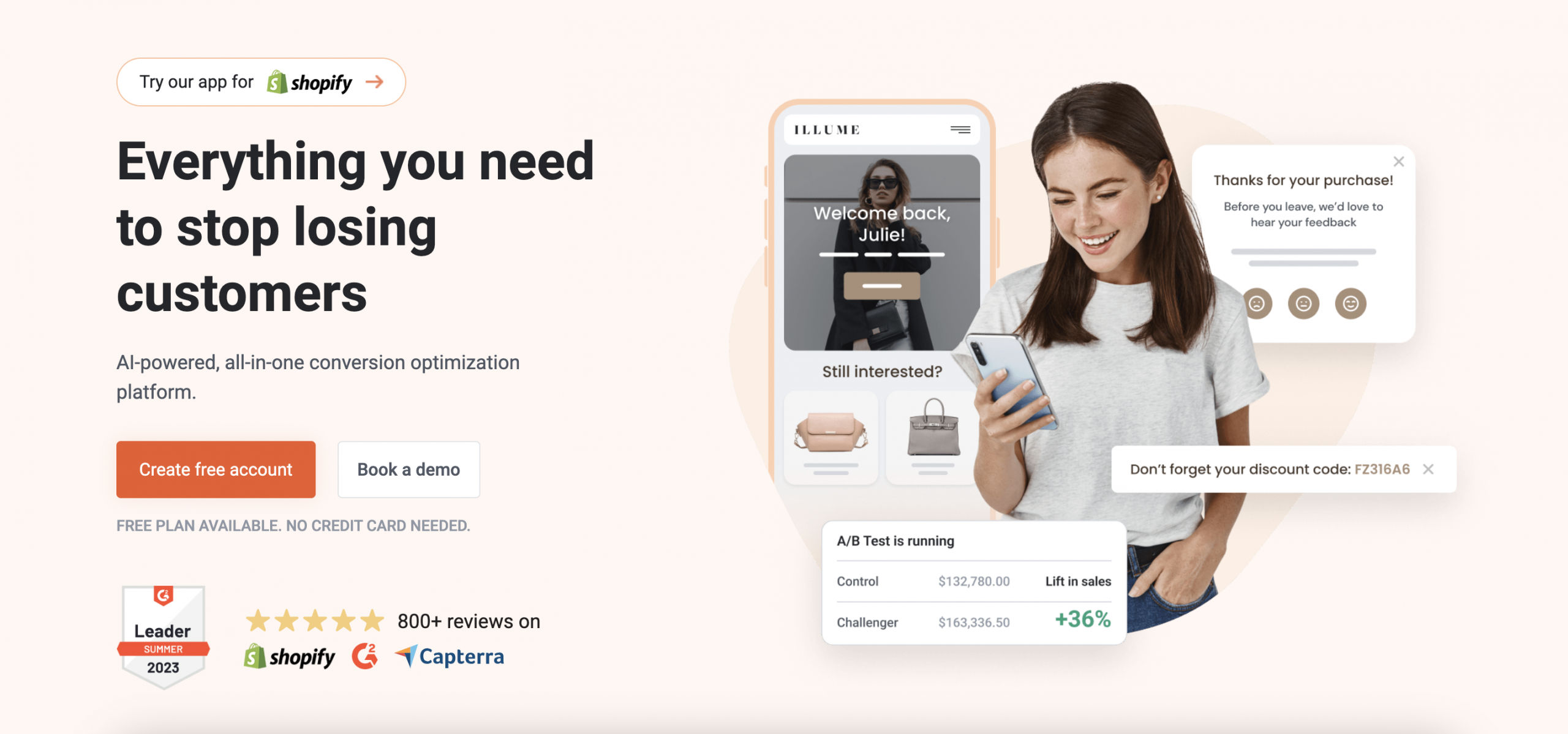
OptiMonk is an all-in-one CRO toolset that provides popups, website personalization, and A/B testing.
With a range of conversion rate optimization tools and features, OptiMonk empowers ecommerce businesses to use targeted messaging, personalized content, and tailored offers to maximize conversions and sales.
Let’s see how OptiMonk helps boost conversion rates.
Key feature #1: A/B testing
A/B testing is a cornerstone feature of OptiMonk, allowing you to experiment with different versions of web pages, popups, or offers to determine which performs best.
This feature enables you to make data-driven decisions and continuously optimize your website and marketing campaigns based on real user interactions.
Key feature #2: Dynamic Content
Website personalization is essential because customers are expecting a seamless user experience. In fact, 91% of consumers say they’re more likely to shop with businesses that provide relevant offers and recommendations.
OptiMonk’s Dynamic Content changes based on the interests and preferences of the individual viewing the web page. When your website visitors see relevant content that responds to their needs, preferences, and behavior, your conversion rates will increase.
For example, many websites display different content to users based on their location, allowing them to show US customers one message and international visitors a different one. You can use Dynamic Content for anything from lead generation to cart abandonment. Deciding where to use Dynamic Content depends on the specific needs and goals of your website.
Key feature #3: Smart popups
OptiMonk’s popups are designed to engage visitors at the right moment with compelling offers or messages, without disrupting their browsing experience.
By analyzing user behavior and triggers, such as exit intent or time on page, these popups can significantly increase the chances of converting visitors into customers.
We provide ready-made popup templates for a wide range of use cases, incorporating proven strategies like discount codes, limited-time offers, gamification, and personalized product recommendations.
Key feature #4: Segments
Segmentation is one of the areas where OptiMonk really shines as a CRO tool.
By automating user research, OptiMonk’s Segmentation feature provides you with recommendations for pre-defined user segments and makes it easy to send relevant messages to small target audiences. (By now, you know that sending the same message to everyone is a no-no, right?)
Furthermore, you no longer need to define your own custom customer segments for each campaign. Instead, you can save specific customer segments, allowing you to set up new campaigns in record time and consistently target those segments with tailored content and offers.
Additional benefits:
- Drag & drop editor: Lets you easily design your campaigns.
- Point & click placement of embedded content: Place Dynamic Content wherever you like on your web pages with a click of the mouse.
- Feedback forms: Gather user feedback with high-converting survey forms.
- 50+ integrations: including Google Analytics, Klaviyo, and many other tools.
- Audience recommendations: Get audience recommendations to effectively target the right segments.
- Smart tags: Use smart tags to take advantage of the first- and zero-party customer data you’ve collected.
- Enhance user experience: Implement overlays like popups, side messages, sticky bars, or full screens to enhance user experience.
Pricing: A free version is available. Paid plans start at $29 per month.
2. Optimizely

Optimizely is a personalization platform that allows ecommerce business owners to optimize their website and boost their conversion rates.
Notable features include A/B testing, personalization, and audience targeting. This is a CRO tool that helps businesses make data-driven decisions.
Pricing: Pricing ranges from $50 to $2,000 per month.
Heat maps and click-tracking tools
To truly understand how users interact with your website, it’s essential to look beyond basic analytics. This is where heat maps and click-tracking tools come into play.
These tools offer a visual representation of user behavior, showing you exactly where visitors are clicking, scrolling, and spending their time. By diving into this data, you can uncover valuable insights that help you refine your site’s design and content for maximum engagement and conversions.
Let’s explore the top heat mapping tools!
3. HotJar
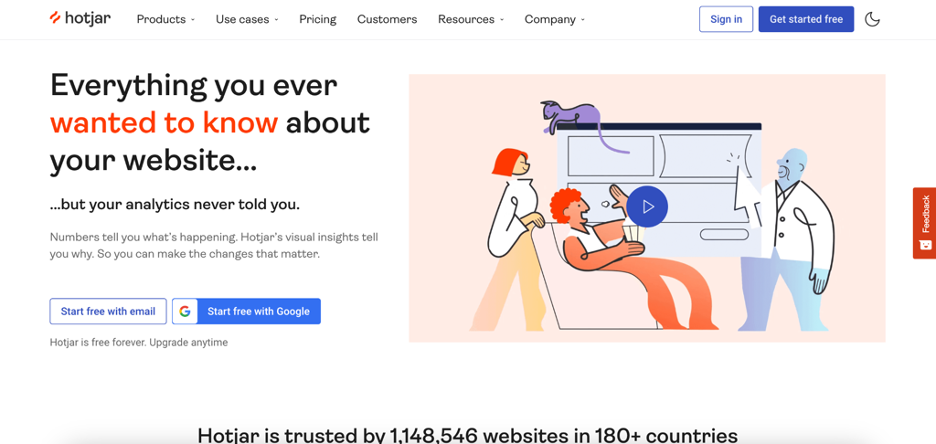
HotJar is a powerful conversion rate optimization tool that helps businesses visualize how users interact with their websites. When it comes to behavior analytics tools, there’s no bigger player than HotJar.
This CRO tool provides heat maps, session recordings, and surveys to help you figure out where your website visitors are bouncing and why.
Pricing: Basic plans start at $39 per month.
4. Crazy Egg

Crazy Egg is another CRO tool that focuses on the user experience, bringing you visual data in the form of heat maps, scroll maps, and click maps.
When analyzing user behavior is this easy and intuitive, you’ll be well on your way to optimizing your website for conversions.
Pricing: Basic plans start at $24 per month.
Survey and feedback tools
Understanding your audience’s thoughts and behaviors is crucial to optimize your conversion rates. This is where survey and feedback tools come into play.
These tools allow you to gather valuable insights directly from your users, providing you with qualitative data that complements the quantitative data from your analytics tools.
Let’s explore some of the best survey and feedback tools!
5. SurveyMonkey

SurveyMonkey is one of the most popular survey tools in ecommerce. With this conversion rate optimization software, you can create custom surveys and collect feedback from your customers.
The many survey templates make it easy to get your surveys up and running, and they also have a wide variety of data analysis features.
Pricing: From €30 per month.
6. Qualtrics
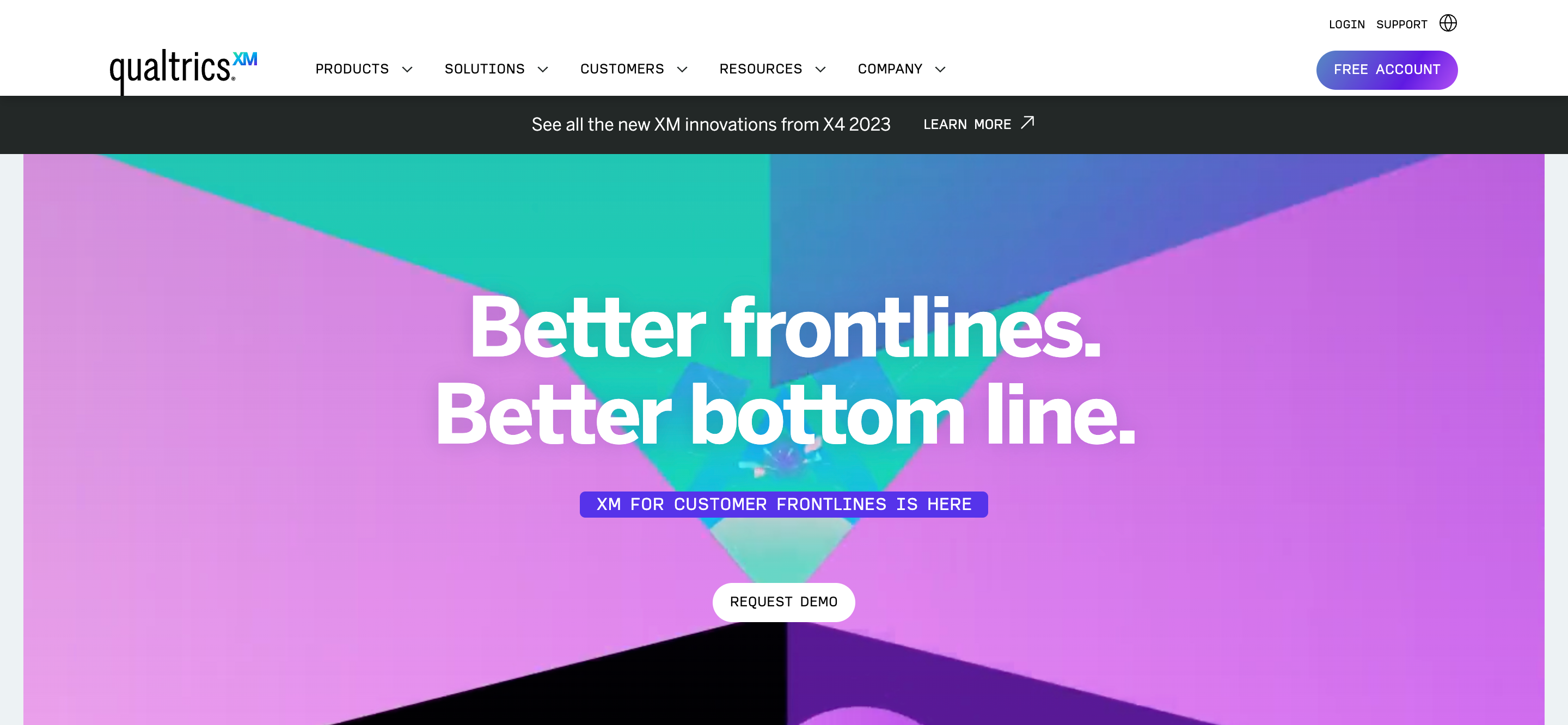
Qualtrics is a comprehensive user feedback management platform. Businesses can use this CRO tool to collect and analyze customer feedback.
Some unique Qualtrics features include research panels and innovative data analysis tools.
Pricing: Contact sales for pricing information.
Live chat tools
Engaging with visitors in real-time is a powerful way to boost conversions and build trust. Live chat tools allow you to provide instant support, answer questions, and guide users through their decision-making process.
In this section, we’ll explore some of the top live chat tools that can help you enhance user experience.
7. Intercom
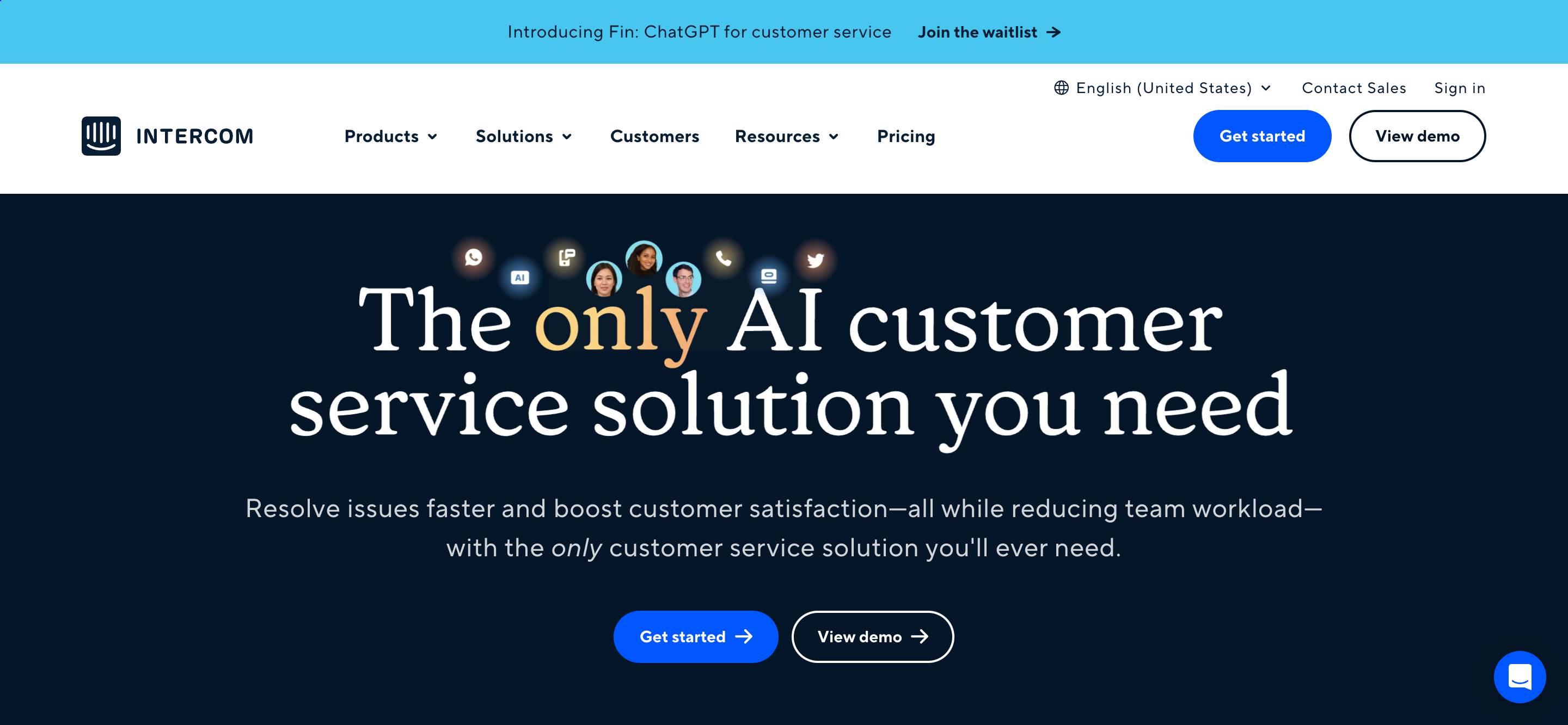
Intercom is a customer relations platform that gives businesses the ability to interact with customers in real time. In addition to live chat, Intercom also allows you to respond with automated messages and send targeted email campaigns.
With Intercom, you’ll be able to provide a smooth customer journey and stay in touch with your customers.
Pricing: Basic plan starts at $39 per month.
8. Zendesk
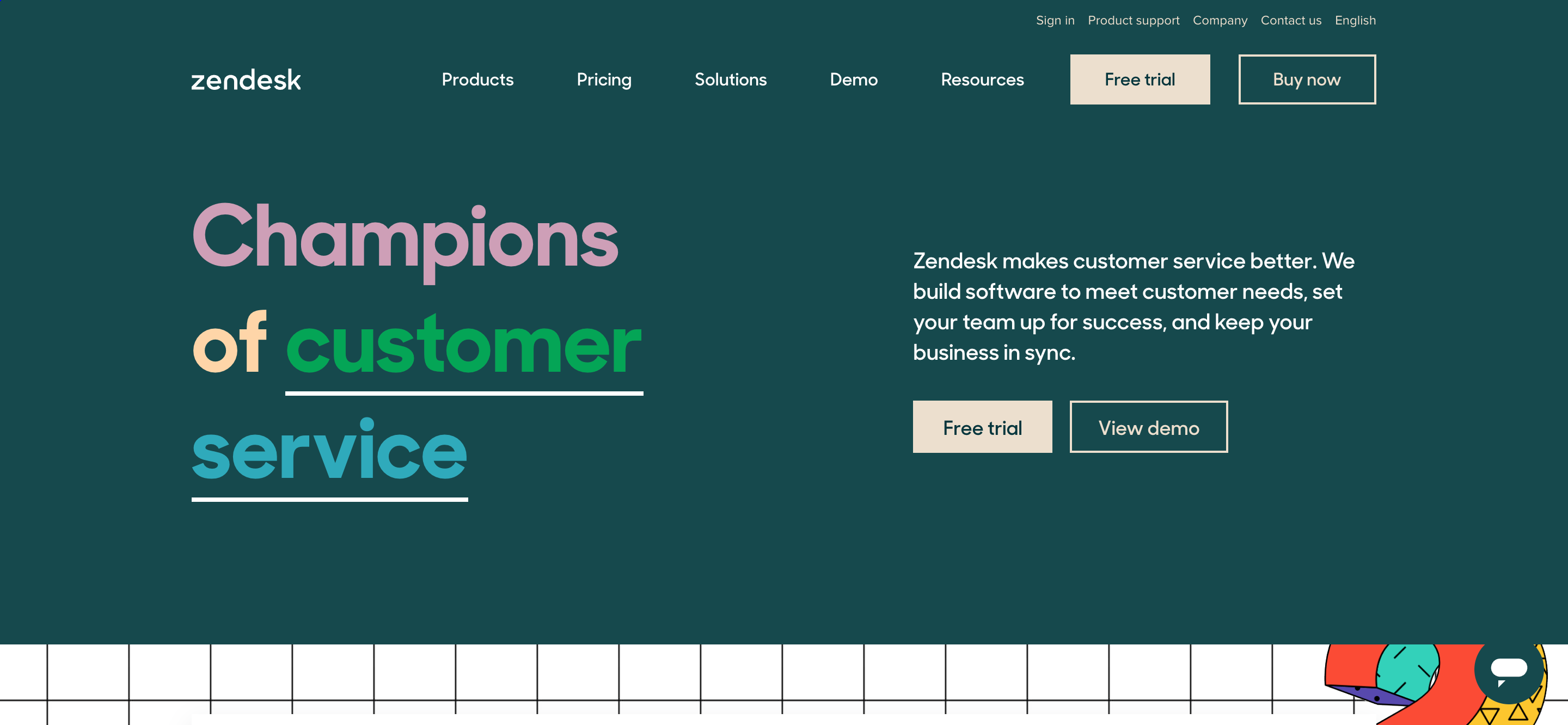
Zendesk is a customer service platform that gives companies all they need to manage support tickets, live chat, and social media interactions. By helping businesses see all the customer interactions they need at a glance, it allows them to resolve issues quickly.
Zendesk implementation enables a unified customer service approach, simplifying the handling of diverse communication channels.
Pricing: Ranges from $5 to $199 per month.
Landing page builders
A well-designed landing page is a cornerstone of any successful CRO strategy. Landing page builders allow you to create targeted, high-converting pages without the need for extensive coding knowledge.
Let’s dive into some of the best landing page builders that can help you create landing pages and maximize your conversions.
9. Unbounce

Unbounce is an extremely popular landing page builder that helps businesses create high-performing landing pages without needing to write a single line of code. It has dozens of landing page templates you can use.
In addition, Unbounce offers its users A/B testing, the ability to measure key performance indicators, and integrations with popular marketing tools.
Pricing: $80 to $300 per month.
10. Leadpages

Leadpages is another landing page software that helps raise the conversion rate of your incoming traffic with features like A/B testing, lead generation campaigns, and deep integrations with other tools that ecommerce businesses rely on.
You can create beautiful landing pages without any coding knowledge, which makes it a great fit for businesses of all sizes.
Pricing: Basic plans start at $27 per month.
Customer journey mapping tools
Understanding the path your customers take from first interaction to conversion is essential for optimizing the user experience and increasing your conversion rates.
Customer journey mapping tools help you visualize this path, identify key touchpoints, and pinpoint areas where users may encounter friction or drop off.
Let’s look at some of the top customer journey mapping tools!
11. Smaply
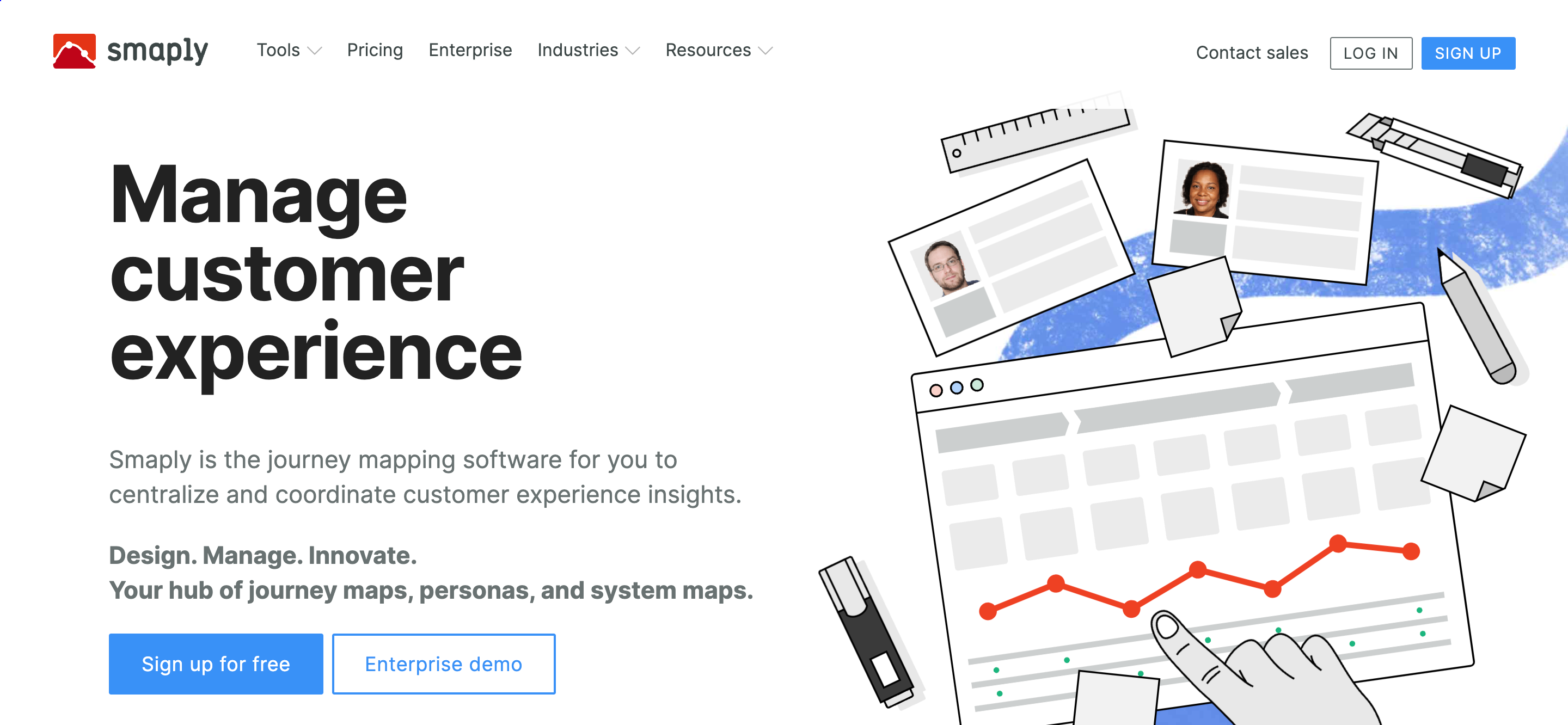
Smaply is great for getting a bird’s eye view of your conversion optimization needs. It’s a user journey mapping tool that will create a visualization of your customer journey so that you can analyze and improve it.
When you see all the customer touchpoints that your visitors go through, you’ll gain a deeper understanding of your customer journey.
Pricing: Basic plan starts at $39 per month.
12. Custellence
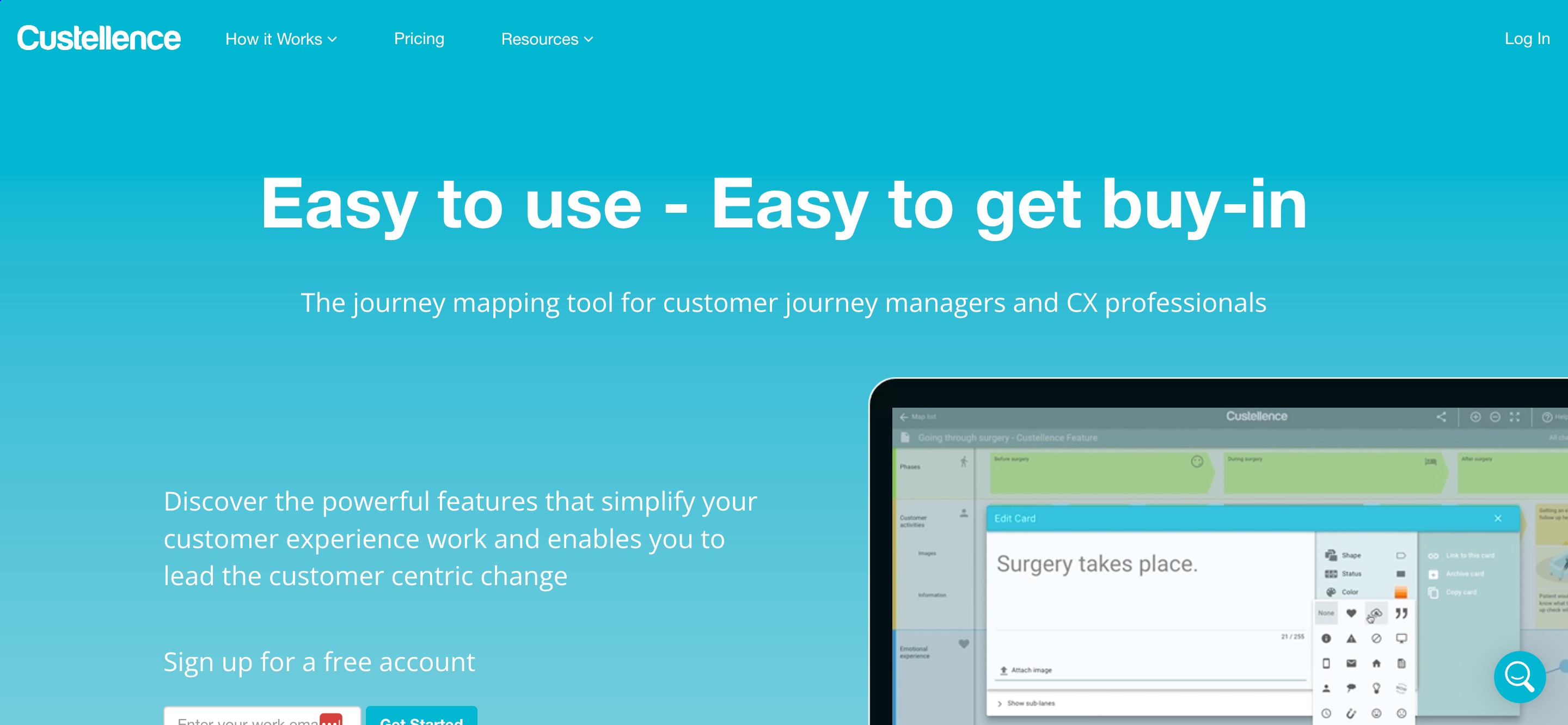
Custellence is a customer journey mapping tool that’s more tailored towards segmentation through their customer persona feature.
This CRO tool can give businesses of all sizes a comprehensive view of the customer experience.
Pricing: Custellence’s pricing ranges from $29 to $299 per month.
Web analytics tools
Data is at the heart of any successful CRO strategy, and web analytics tools provide the insights needed to make informed decisions. These tools track and analyze user behavior on your site, revealing what’s working and what’s not.
Let’s explore some of the best web analytics tools!
13. Google Analytics

Google Analytics is a popular web analytics tool that helps businesses track user behavior, website traffic, and conversion rates. It gives you access to a ton of traffic data that can be useful for optimizing your website.
Pricing: Google Analytics is a free website optimization tool.
14. Kissmetrics
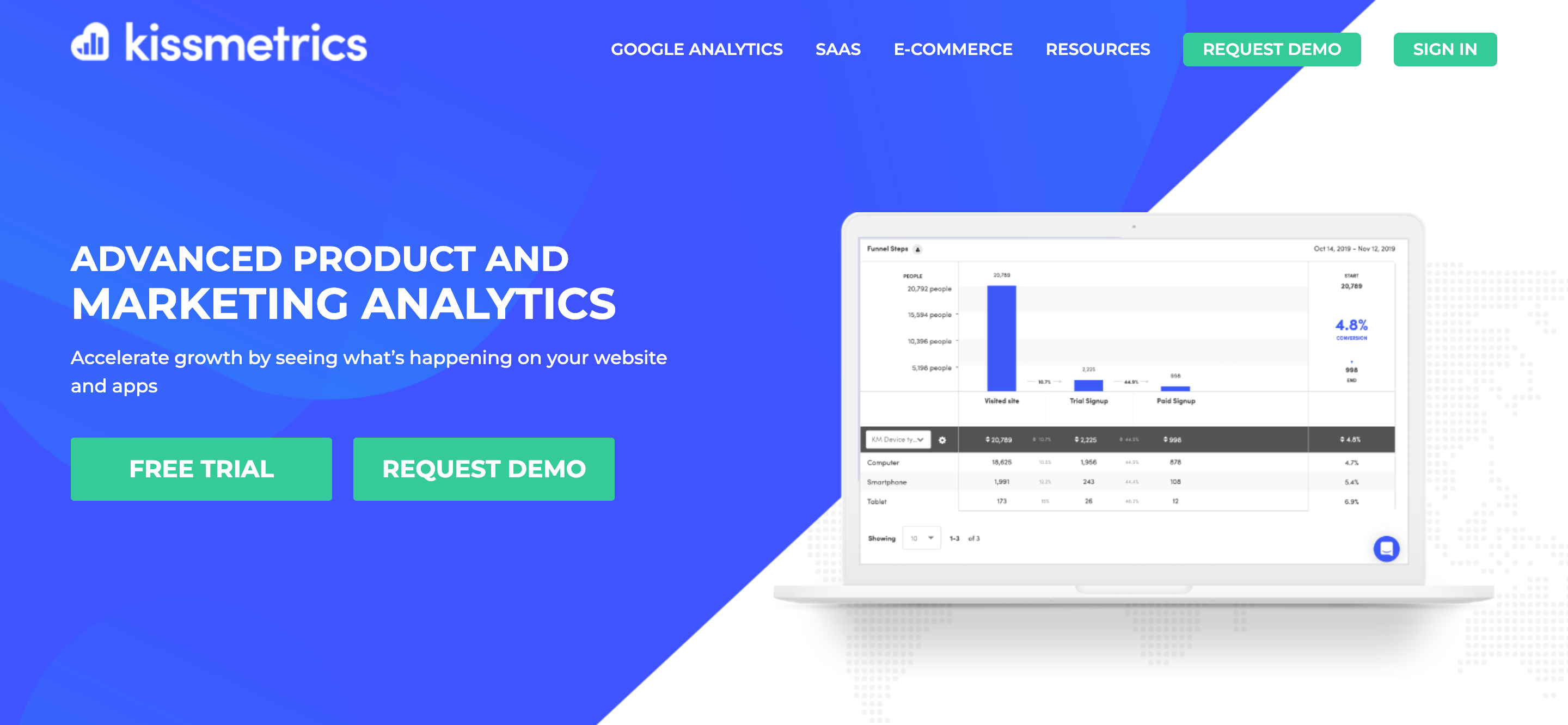
Kissmetrics is one of the best web analytics tools for analyzing user behavior, identifying trends, and increasing conversion rates.
Some of the most notable features are funnel visualization, A/B testing, and cohort analysis.
Pricing: Basic plans start at $299.
3 examples of winning CRO strategies
Now that we’ve seen the top 14 CRO tools you should consider using, let’s take a look at how they can help you optimize your conversion rates with a few real-life examples!
1. Personalize your email landing pages with the name of the visitor
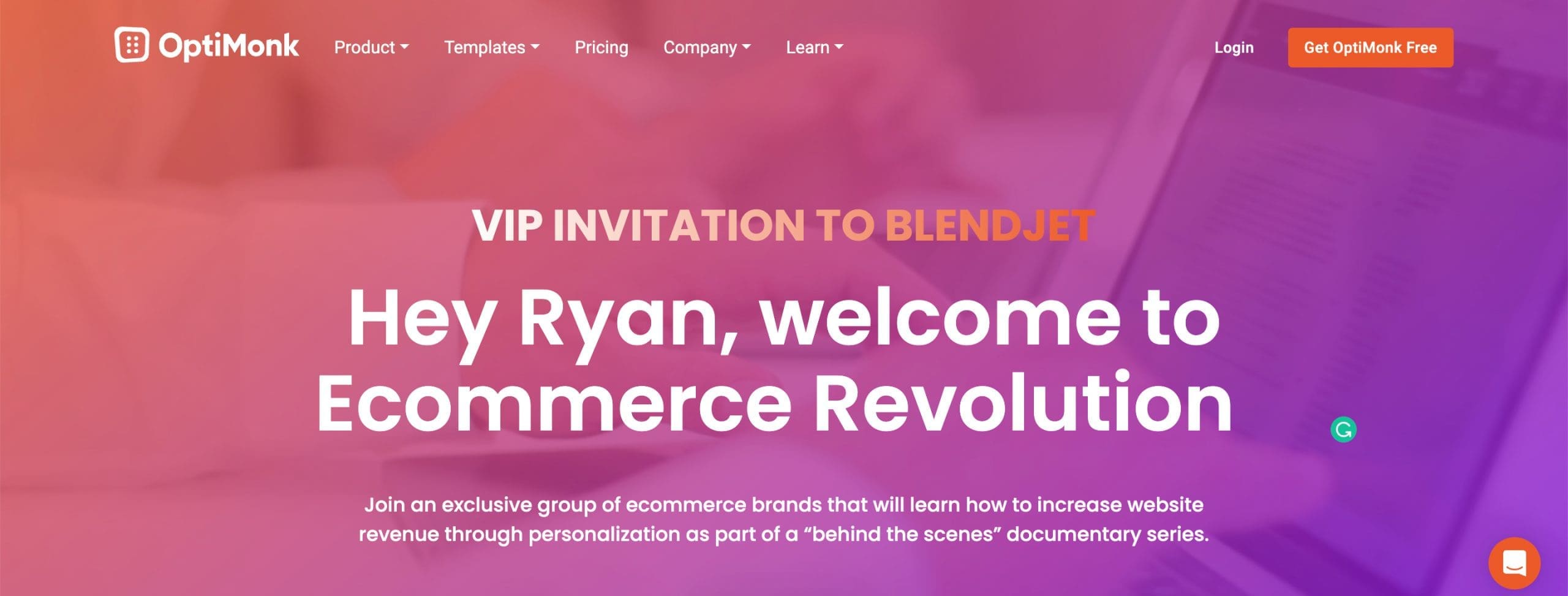
If you want to boost the ROI of your email marketing campaigns, it’s a great idea to personalize your landing pages by including your subscribers’ first names. When a user clicks on a link in an email campaign, they want to see a customized user experience that makes their online shopping easier.
Since you’ve probably already collected this information from your subscribers, why not include a personalized greeting such as “Welcome to our website, Ryan”?
When you create an engaging experience for subscribers arriving on your landing pages, you’ll likely see higher conversion rates and, ultimately, a better ROI.
2. Experiment with various offers on your lead generation forms
What about building an email list in the first place? You can use CRO tools to track user behavior and improve the conversion rates of your email signup forms.
One popular data-driven tactic involves experimenting with different offers in order to find the ones that resonate best with your audience. For instance, you might want to test out whether your audience prefers a 10% discount, a buy one get one (BOGO) offer, or free shipping.
To simplify the process, you can use OptiMonk’s Variant A/B testing feature to compare multiple versions of your signup form and determine which offer performs the best.
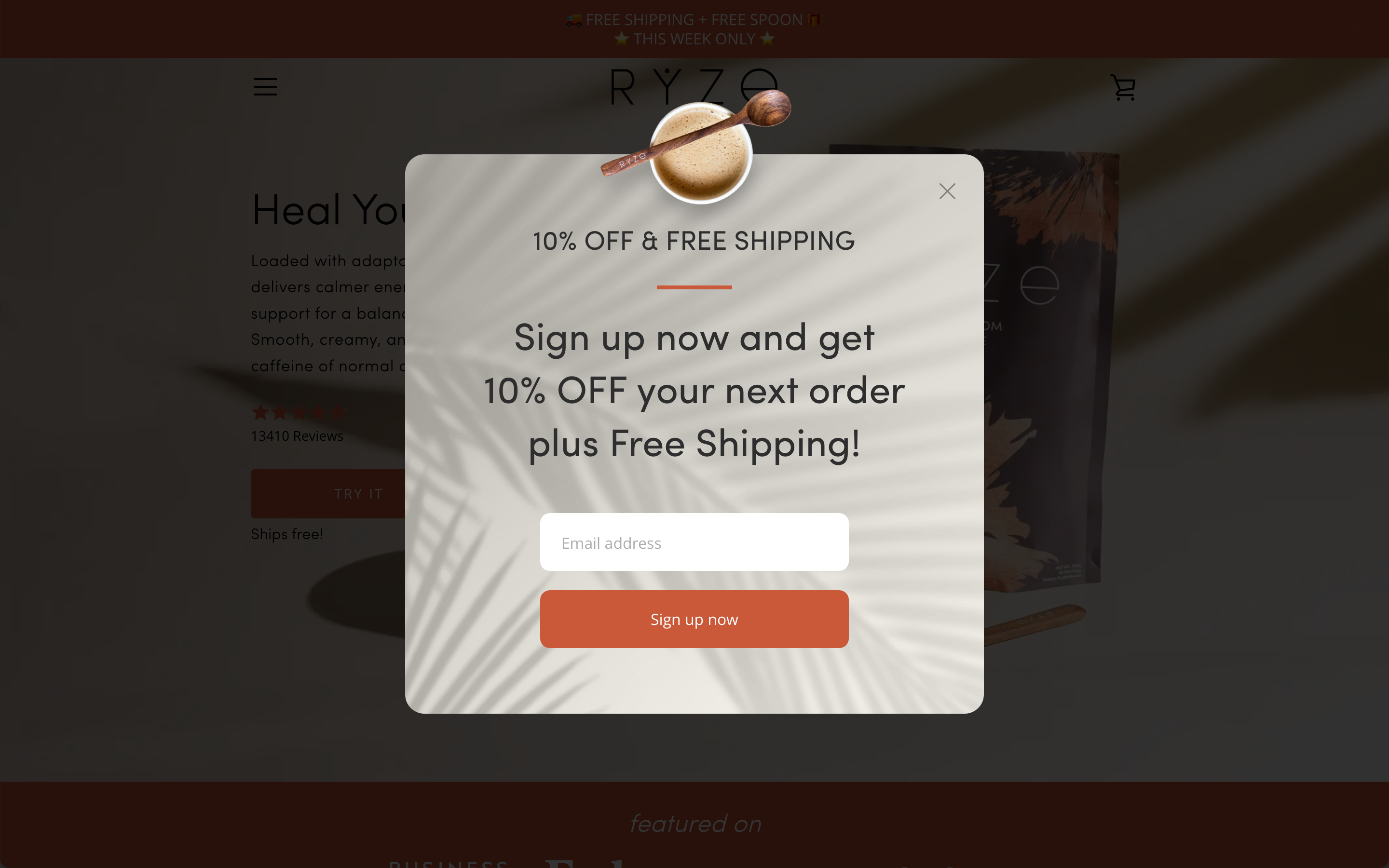

3. Personalize landing page headlines based on Facebook ad copy
Are you running multiple Facebook or Instagram ads with different copy, value propositions, or designs? And are you driving traffic from all those ads to the same landing page?
That could be a missed opportunity, since the users responding to different ads might convert better if they saw tailored headlines and copy instead of one-size-fits-all messaging.
Take this ad for a hair loss product from Obvi, a beauty brand that sells lots of different products. When someone clicks on this particular ad, Obvi keeps the messaging consistent on the landing page.
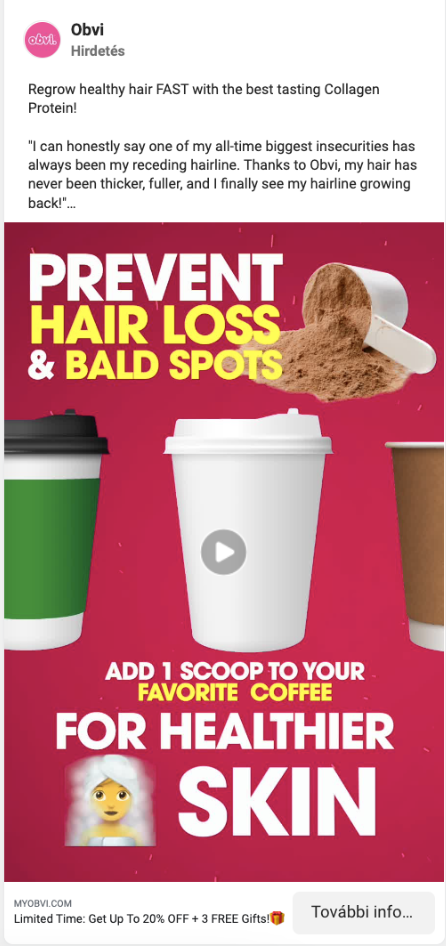
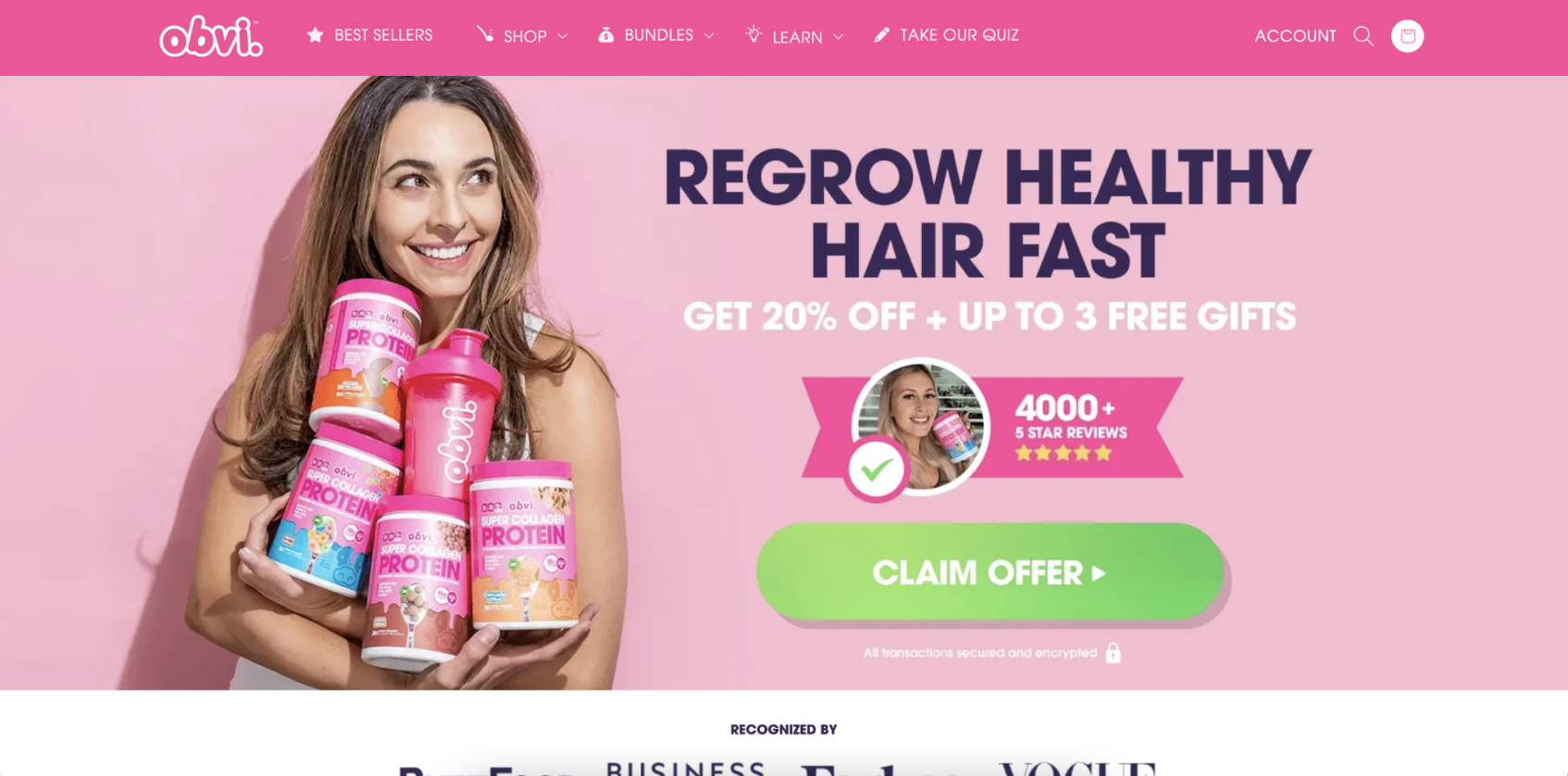
All you need to do is to create a new Experience variant for each Facebook ad and personalize your landing page copy using OptiMonk’s Dynamic Content feature.
This can boost the ROI of your Facebook Ads by up to 50%.
Eager to learn more about boosting your conversion rates? This video shares proven methods to skyrocket your revenue:
FAQ
What are conversion rate optimization tools?
Conversion rate optimization tools are software applications that help businesses increase the percentage of website visitors who take a desired action, such as making a purchase, filling out a form, or subscribing to a newsletter.
There are many different ways to pursue those goals, so that means there are lots of different types of CRO tools.
In general, a CRO tool will include data analytics, user behavior tracking, and A/B testing features, but different tools will have different areas of focus. One CRO tool might be all about improving your website design in order to increase conversions, while another might be focused on lead generation.
You’ll need to identify your digital marketing needs to figure out which conversion rate optimization tool is best for you and your business.
What are CRO techniques?
CRO techniques are methods used to increase the percent of visitors that convert. Here are some common methods:
- A/B testing: Create two versions of a landing page to see which performs better.
- CTA optimization: Optimize the placement, design, and wording of the call-to-action buttons.
- Landing page optimization: Tweak the design and content of landing pages to make them more relevant and engaging to visitors.
- Personalization: Personalize your website for individual users based on their behavior and previous interactions.
- Website speed optimization: Increase your page speed in order to improve the user experience.
Final thoughts
Finding the right conversion optimization tools for your business can be daunting, especially since there are so many options to choose from.
Hopefully this article has helped you narrow down your choices and get inspired to start optimizing your own conversion rates!
Using powerful CRO software like OptiMonk to increase conversions and make the most out of your incoming traffic is one of the best investments you could make as an online business. Which tool from our list are you planning to try out first?
Migration has never been easier
We made switching a no-brainer with our free, white-glove onboarding service so you can get started in the blink of an eye.
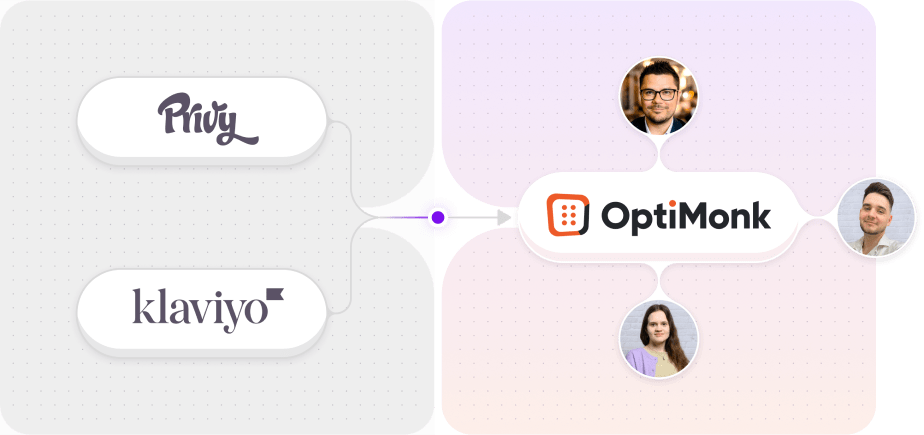
What should you do next?
Thanks for reading till the end. Here are 4 ways we can help you grow your business:
Boost conversions with proven use cases
Explore our Use Case Library, filled with actionable personalization examples and step-by-step guides to unlock your website's full potential. Check out Use Case Library
Create a free OptiMonk account
Create a free OptiMonk account and easily get started with popups and conversion rate optimization. Get OptiMonk free
Get advice from a CRO expert
Schedule a personalized discovery call with one of our experts to explore how OptiMonk can help you grow your business. Book a demo
Join our weekly newsletter
Real CRO insights & marketing tips. No fluff. Straight to your inbox. Subscribe now
Barbara Bartucz
- Posted in
- Conversion
Partner with us
- © OptiMonk. All rights reserved!
- Terms of Use
- Privacy Policy
- Cookie Policy
Product updates: January Release 2025

